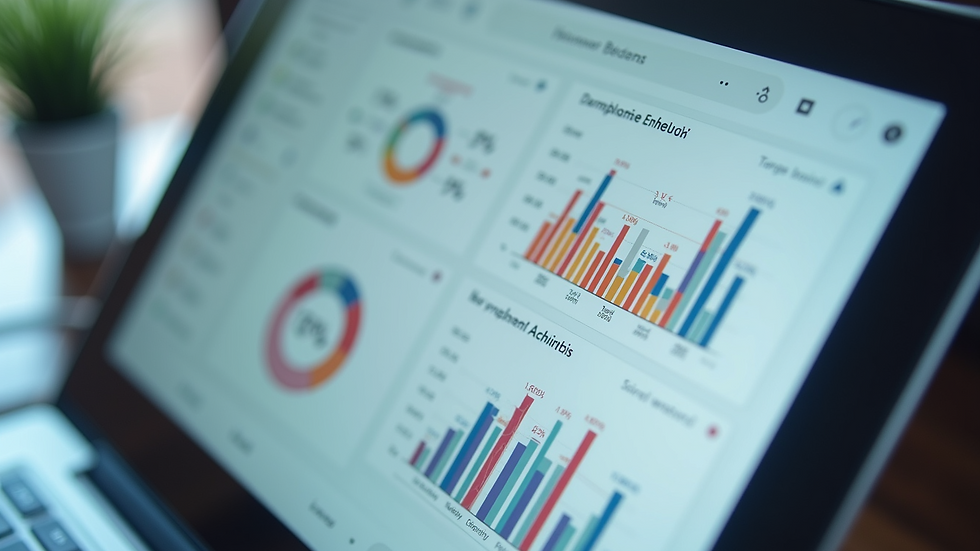Understanding How Websites Handle Your Data
- Kevin White

- Jun 2, 2025
- 3 min read
In today's digital world, understanding how websites handle your data is crucial. Every time you browse online, your information is collected, stored, and used in various ways. This article explores how websites manage your data, the implications for your privacy, and what you can do to protect yourself.
The Importance of Privacy Policy
A privacy policy is a statement that explains how websites collect, use, and protect your personal information. It is crucial because it provides transparency about data practices. For example, when you create an account on a website, you often encounter a privacy policy that outlines how your data will be handled.
Many websites now comply with regulations like GDPR (General Data Protection Regulation) and CCPA (California Consumer Privacy Act), which dictate how companies should manage customer data. According to a report from the International Association of Privacy Professionals (IAPP), more than 70% of consumers express concern over how their personal data is stored and used.

Types of Data Collected by Websites
Websites collect various types of data, ranging from basic demographics to more detailed behavioral information. Let's break down some of the most common data types:
Personal Information: This includes your name, email address, phone number, and home address. Websites collect this information when you fill out forms or create an account.
Cookies: Most websites use cookies to track your interactions and preferences on the site. Cookies are small files saved on your device, which help the website remember you during your next visit.
Behavioral Data: This consists of information about how you interact with a website. It includes your browsing habits, the pages you visit, and how long you stay on each page.
Location Data: Many websites track your geographical location to provide personalized content or advertising. This often occurs through IP addresses or GPS data on mobile devices.
Understanding the types of data being collected can help you make informed decisions about your online activities.

How Websites Utilize Your Data
Once a website collects your data, it uses it in several ways. Here are the most common uses:
Personalization: Websites use your data to tailor content and advertisements to your preferences. For instance, streaming services use your viewing history to recommend new shows or movies.
Analysis: Companies analyze collected data to understand consumer behavior. This can help them improve their services and marketing strategies.
Communication: Websites use your data to send you updates, newsletters, or marketing materials. For example, e-commerce sites may send you special offers based on your previous purchases.
Third-Party Sharing: Some websites share your data with third parties, such as advertisers or partners, for additional analytics and targeted marketing. It's essential to read the privacy policy to see who your data is shared with.
It's vital to be aware of these practices, as they can have significant implications for your privacy and online experience.
How to Protect Your Data
In an age where data breaches and identity theft are common, taking steps to protect your personal information is essential. Here are some strategies you can implement:
Read Privacy Policies: Before using a website, take the time to read its privacy policy. Understanding how your data will be used can help you make more informed choices.
Adjust Your Privacy Settings: Many websites allow you to customize privacy settings. Take advantage of these options to control what information is collected.
Use Strong Passwords: Create complex passwords for your accounts and change them regularly. Utilize a password manager to keep track of your passwords securely.
Be Cautious with Public Wi-Fi: Avoid accessing sensitive information or making transactions on public Wi-Fi networks. Use a VPN for added security when needed.
Limit Data Sharing: Refrain from providing unnecessary information when signing up for services. The less data you share, the less that can be compromised.
Taking these precautions can help safeguard your data and maintain your privacy online.

Final Thoughts on Data Management
Understanding how websites handle your data is fundamental in today's digital landscape. The insights shared in this article can empower you to protect your privacy more effectively. Websites have a responsibility to handle your information securely and transparently, while you also play a critical role in managing your data.
For more information on how websites handle your data, you can read about their website data usage policies. By staying informed and proactive, you can navigate the online world with greater confidence and security.




Comments